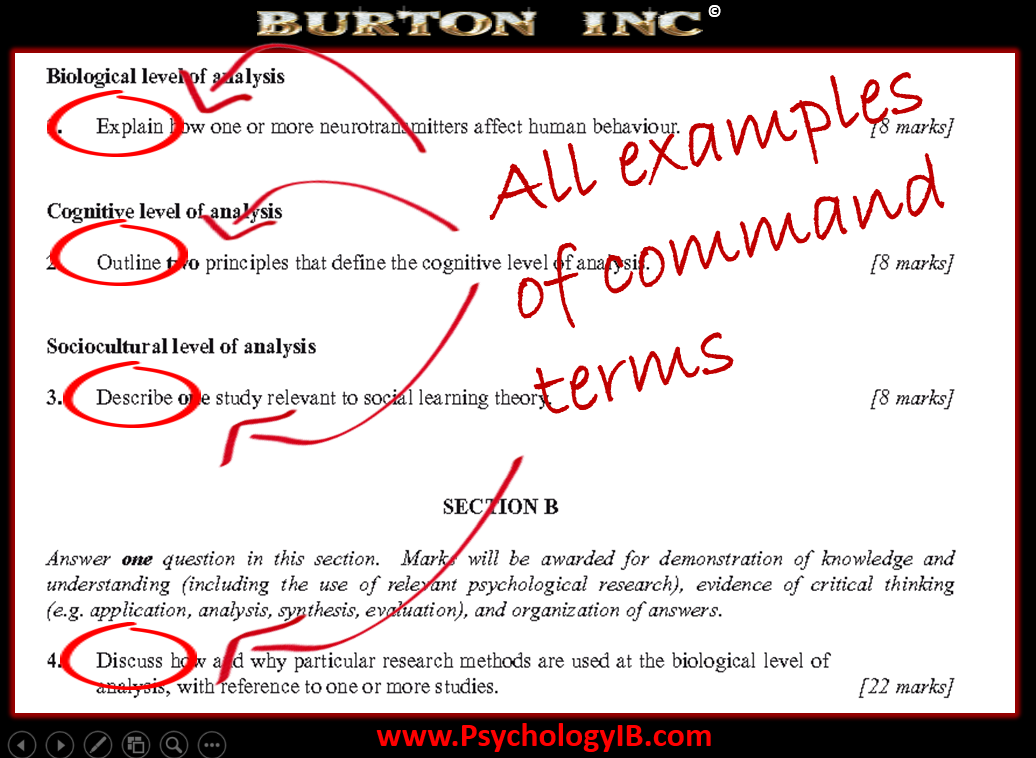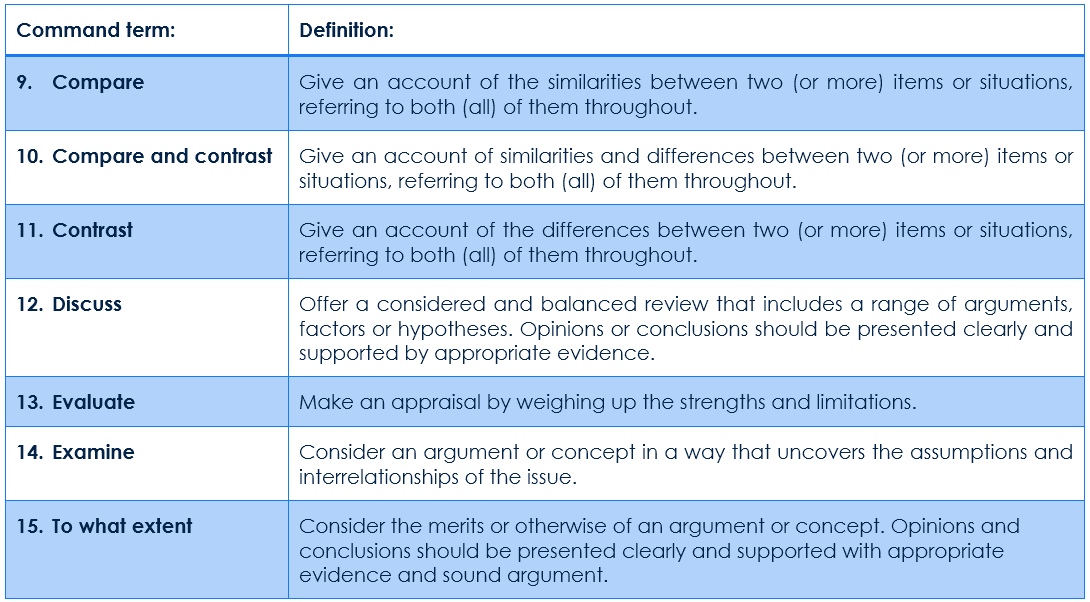| Know thy command terms. In search of perfect answers to your IB Psychology examination questions? You will need to start with the command term. "Outline two principles that define the cognitive level of analysis" will be answered differently from "Explain the two principles that define the cognitive level of analysis." Outline and Explain are both examples of command terms that can be used in short answer exam questions. That difference needs to be apparent in your answer to each question - you can be sure that the beady little eyes of the IB examiner will be scrutinising your answer for this information. When answering IB Psychology exam questions it is important to identify the command term in each question. These will determine how you should answer the question. Command terms such as 'explain', 'outline', ‘examine’, 'to what extent', and so on carry different meanings and this should be reflected in your answers. The command term in an examination question is very important. It provides two things the examiner is looking for and specifically awarding (or penalising!) you marks for. The first is structure. Are you structuring you answer according to the command term to answer the question? Secondly, has your answer ‘effectively addressed the command term’? Below is one of the markband descriptors IB Psychology examiners are using to mark you Short Answer Questions (i.e. those three 8 mark questions in the Paper 1 exam). Not addressing the command term will limit your maximum mark to 6 marks, instead of the full 8 had your answer effectively addressed the command term. |
|
Conclusion: If you do not learn your command terms and practice tailored answers to the IB examination questions according to the command term requirement you will be foregoing many marks and at least an entire grade boundary in your total IB Psychology score, possible two. Knowing your command terms could easily elevate your IB Psychology Diploma mark from a 5 to a 7 to ensure maximum success, or from a 3 to a 4 to avoid certain failure. Thus, the first rule of IB Psychology is: KNOW THY COMMAND TERMS.
The tables below summarises how you should use the command terms when you are answering questions and how they apply to particular questions. I will actively look for a particular structure associated with the command term to be present in a student's answer when assessing their SAQ or ERQ answer. If their knowledge and comprehension is outstanding and the critical thinking deep and analytical, I still will not award full marks if I believe the command term has not been addressed. Harsh!
There are 15 IB Psychology command terms in total. Only seven of these can be used to ask the extended response exam questions.
Command terms associated with assessment objective 1: Knowledge and comprehension
Command terms associated with assessment objective 2: Application and analysis
Command terms associated with assessment objective 3: Synthesis and evaluation
In the learning outcomes (see syllabus content) the command terms are associated with assessment objectives 1, 2 or 3 and indicate the depth of understanding that is required of students in relation to each item of content. The grouping of command terms under assessment objectives reflects the cognitive demand of each term and is related to Bloom’s taxonomy.
- A command term used in an examination question will be:
- The same as that specified in the related learning outcome, or
- Another command term associated with the same assessment objective, or
- A command term of less cognitive demand.
This means: A lower level learning outcome (e.g. ‘Explain one study related to localization of function in the brain’ will never be asked as a 22 mark ERQ in the IB Psychology examinations. It means you can plan your ERQ answers in advance and think about how you can adapt each answer if it is asked with a different command term. Don't delay. Start practicing today.








 RSS Feed
RSS Feed